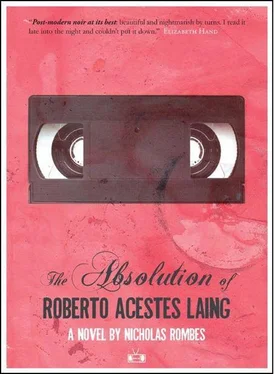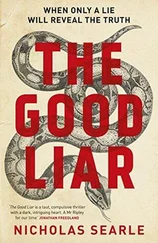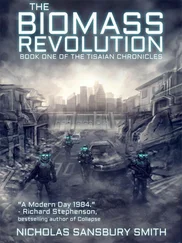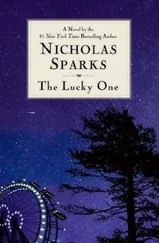“The sadness of that tipped-over chair. With both hands I gripped it and set it upright in some lame attempt to restore order. Did I understand that in doing so I had become an intruder of the highest order? I suppose I did, and yet I was still under the spell of Julia Kristeva, Michel Foucault, Tzvetan Todorov and the other alien theorists for whom there was no action that could not be explained in terms so deterministic that they made a complete lie out of the concept of free will. Todorov, especially, his name over-spilling with vowels and that lone and violent letter z . His book The Conquest of America: The Question of the Other quoted heavily from The Devastation of the Indies: A Briefe Account published in 1552 by Bartolomé de las Casas, which offered a first-hand account of the Spanish atrocities against the indigenous peoples of the Americas and the Caribbean:
As has been said, the Spaniards train their fierce dogs to attack, kill and tear to pieces the Indians. It is doubtful that anyone, whether Christian or not, has ever before heard of such a thing as this. The Spaniards keep alive their dogs’ appetite for human beings in this way. They have Indians brought to them in chains, then unleash the dogs. The Indians come meekly down the roads and are killed. And the Spaniards have butcher shops where the corpses of Indians are hung up, on display, and someone will come in and say, more or less, ‘Give me a quarter of that rascal hanging there, to feed my dogs until I can kill another one for them.’ As if buying a quarter of a hog or other meat.
“If I was the intruder here — in this room that A. had led me to in the basement of the Burrowes building — then whose territory was this, and how was righting the fallen chair an act (which I considered an act of love) more violent than the atrocities that had been borne upon the poor soul who had been strapped to that chair? By the time A. appeared in the doorway behind me, stepping over the remnants and ashes of the burnt sheet, I realized that the phrase All your base belong to us was no longer a sentence that I was outside of, but rather a sentence that I inhabited in some fatal way.
“Of course, the solution to all this was obvious in that moment: the only way to make things right was to seat myself in that chair, and to wait for the terrible inevitable. I had placed the fallen-over chair back on its feet to prepare it for the next subject: me. And if it hadn’t been for A., at that moment putting her hand gently on my shoulder, and leading me back, out of the basement, then I really do think I would have given myself over to the strange territory of that room whose dull orange light, even to this very day I still see sometimes when I shut my eyes, glowing like both a warning and an invitation.”
*
Laing seems to be completely lost. I sense that it’s best to give him a few moments. During this entire time the wind has been gusting against the cheap motel door and window, and it seems right to just listen to it. And for the first time I notice that the room’s walls aren’t blue, as I thought they were, but a very pale shade of ocean green. Laing stands up and goes to the window. He’s wearing some kind of khaki shirt that brings to mind a photograph of someone on safari. He parts the drape and watches as the rain pelts the window so hard that you could imagine a row of soldiers machine-gunning the hotel except that by the time the bullets arrive they have turned to water pellets. Laing lets the drape fall back and turns to face me. His face — something about his pinched eyes and slight scowl that disguises a grin — reminds me of Charles Bronson, mid-1970s Charles Bronson of Mr. Majestyk and Hard Times . He seems not to be looking at me but through me, as if there’s another version of myself right there behind me, a version that’s accessible to Laing only. I don’t know how long he stares at me (or the me behind me) but I can tell you it feels like hours had been compressed into a few moments and during those moments I can feel myself aging, really feel it in my bones and muscles and veins as if Laing — through his weird, altering gaze — is somehow butchering time. The motel room seems unsteadier than ever as if it’s collecting itself more compactly around the figure of Laing, who by now has stopped staring at, or through, me and has gone into the small bathroom where, impossibly, I hear him speaking in a hushed, brusk voice to someone. Impossible, I say, because I had been in the bathroom earlier and there was, of course, no one there. I feel the flash of some super-new truth behind my eyelids. It’s like I’ve gulped down water too fast and the back of my throat hurts. And that’s followed by more soft, hushed words by Laing spoken to someone or some thing in the bathroom, or just to himself which maybe amounts, in the end, to the same thing. When he comes out his safari-like shirt looks damp, like he’s been sweating. He claps his hands together as if to say, There! It’s all done now! and comes back to where he was.
“The last film,” he says, “that I remember. A. took me to see it, or else I dreamed that she took me. She tells me there’s a movie I need to see. The last showing’s at midnight. She takes my hand and leads me through the streets of Philadelphia, a city I thought I knew but that, with each step with her, fades away and is slowly replaced with something completely unfamiliar. Different buildings (if buildings is even what you’d call them) and crazily named streets that loop like cursive.”
Laing hands me a slim yellowed folder.
“All I have left are notes, fragments of a film that was itself fragmented, told in lightning jolts. It actually wasn’t the last showing. We watched it three times that night, into the early morning hours. It’s called (or was called then) Blinding Forward . Something to do with snow, but there’s no snow in it. It was made in 1990, directed by Agnès Varda, her only American film, which she suppressed, but which was sent to Edison (who for a short time owned the Orpheum Theater outside of Harrisburg) by Alain Ronay who, along with Varda, had been one of the few people to attend Morrison’s funeral in Paris. With each viewing,” Laing says, “I added to and refined my notes (in parentheses, in italics) jotting down dialog, bits of information, fragments of dialog and voiceover in quotation marks.”
Here is what he handed me, his typed viewing notes on Blinding Forward , which I’m reproducing here:
A man named Haydn’s standing on the balcony of the decrepit, yellowing motel in summertime. A car crash has killed his wife and daughter on their way home from the mall on a bright and sunny Tuesday afternoon the previous year ( the movie conveyed this with an elaborate pattern of cross-cutting ) and the fact of their deaths was already “hardening into legend” in his mind. Haydn remembers how Tommy Parker, the principal, stood outside the hot gym waiting after the seventh-period assembly and put his big hand on his shoulder ( conveyed via Haydn’s voiceover, but a voiceover that seems to come from the other side of the grave ) and looked at him with sad, distracted eyes, and how the police officer told him the news with a sort of awkward familiarity, and how quickly and efficiently his wife and daughter were buried and spoken about by the “passionless minister,” and the old house that they had moved into north of Detroit when they were married sold along with nearly everything they had owned. The funny purple couch, the antique filing cabinet ( details on the screen; the smell of burnt popcorn ) they had bought together in Millersburg, Pennsylvania, the espresso coffee maker that they had only used twice, the piano with stuck keys increasing like a contagion. Their daughter’s computer, her new clothes for college, her trophies from track, her bulletin board. All these things, they were props, they belonged to someone else. Haydn feels as if all the “secret greasy mechanisms” that lay beneath the surface were exposed, revealing the absurd logic of events and consequences: death and burial, morning and night, waking and sleeping, talking and listening, standing and sitting. He feels that maybe he was being punished ( this is depicted, according to my notes, by Puritan era woodcut images of hell ) for thinking this way, for harboring these thoughts.
Читать дальше












![Nicholas Timmins - The Five Giants [New Edition] - A Biography of the Welfare State](/books/701739/nicholas-timmins-the-five-giants-new-edition-a-thumb.webp)